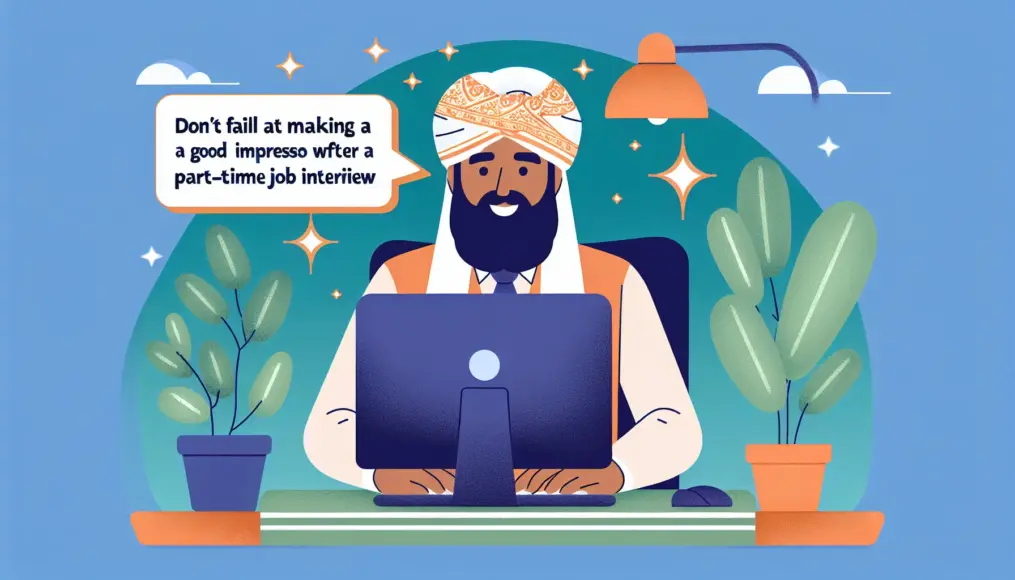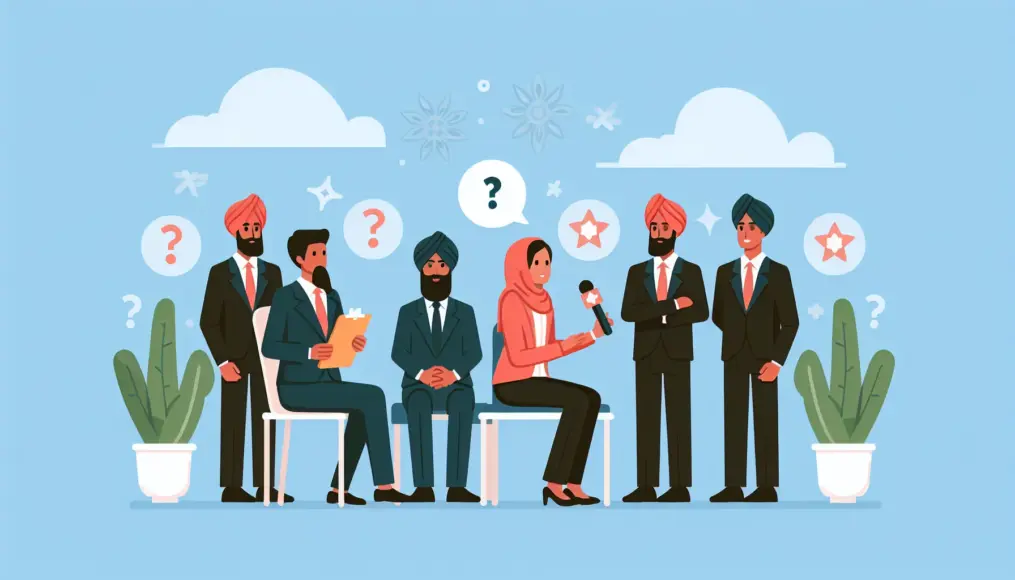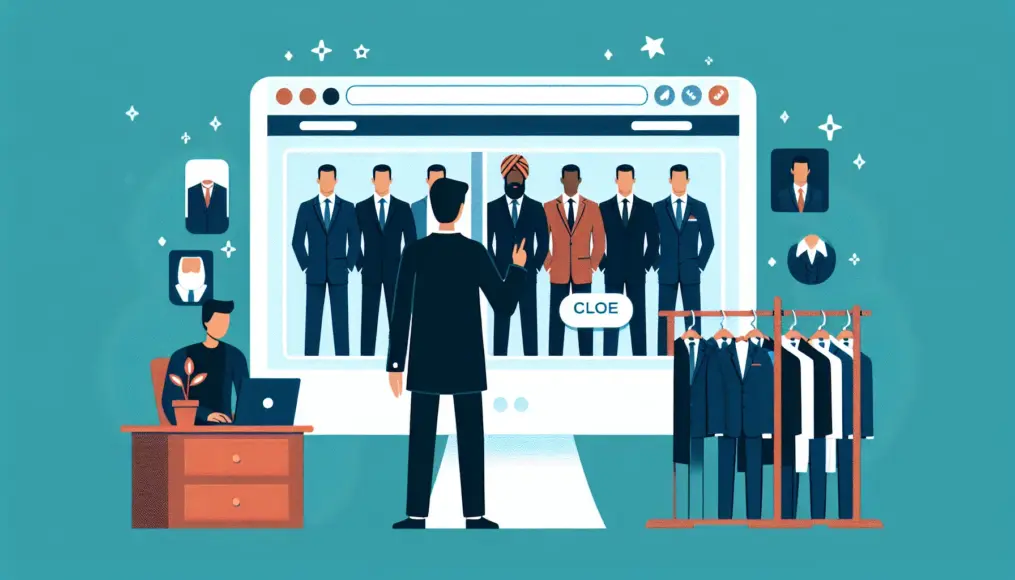Sending a thank-you email after a part-time job interview is essential. It’s a simple yet effective way to express your gratitude and create a positive impression on your interviewer.
Through this email, you can convey your enthusiasm and appreciation, which could be the key to moving forward in the hiring process.
- Understand the importance of a thank-you email
- Master the basic structure and how to start
- Consider the timing and method of sending
Understanding the Importance of Thank You Emails
Sending a thank you email after a job interview can greatly influence the impression you leave.
This is your chance to express genuine gratitude, showcasing your appreciation for the opportunity.
A thank you email serves as an excellent opportunity to demonstrate your enthusiasm and professionalism to the interviewer.
Why Do You Need a Thank You Email?
There are several reasons to send a thank you email after your interview.
First and foremost, it allows you to express your gratitude to the interviewer.
By conveying your thanks, you reinforce the impression that you are a polite and respectful individual.
Additionally, a thank you email is a great way to reaffirm your interest in the position.
Expressing gratitude post-interview can help highlight your enthusiasm and set you apart from other candidates.
- A thank you email is a way to express your gratitude
- Demonstrating politeness leaves a positive impression
- Reaffirming your enthusiasm helps differentiate you from others
What Impression Does the Interviewer Get?
What kind of impression do interviewers form upon receiving a thank you email?
Typically, they are left with a sense of appreciation for your politeness.
Sending a thank you email communicates your interest in the position.
Moreover, the thoughtful wording and structure of your email can lead them to evaluate your communication skills as well.
This is why it’s crucial to craft a well-written and meaningful message.
- A thank you email shows politeness
- It’s a means to convey interest in the position
- You might be assessed on your communication skills
If you want to learn more about how to express your gratitude after an interview, check out Tips for Thanking via Phone After an Interview: 5 Key Points for Success.
Essential Structure for Thank-You Emails After a Job Interview
When sending a thank-you email, it’s crucial to understand the basic structure involved.
The way you craft the subject line and the content of your email can significantly impact the impression you leave on your interviewer.
By writing a well-structured thank-you email, you can effectively convey your enthusiasm and professionalism.
Crafting the Subject Line
Keep your subject line simple and to the point.
Using a phrase like “Thank You for the Interview” makes the purpose of your email immediately clear.
Additionally, including the specific date of the interview can help make your email more memorable.
A concise and clear subject line can grab the interviewer’s attention right away.
- Keep the subject line straightforward
- Clearly state “Thank You for the Interview”
- Include the date for memorability
Starting the Email Body
In the body of your thank-you email, it’s important to maintain a tone of courtesy.
Begin with a note of gratitude for the opportunity to interview.
For instance, saying “Thank you for the opportunity to interview the other day” sets a positive tone.
Next, refer to specific topics discussed during the interview to express your enthusiasm further.
This approach not only demonstrates politeness but also helps create a favorable impression. If you’re curious about interview attire and etiquette, check out Tips for Successful Interview Etiquette for more insights.
- Maintain a courteous tone in the body
- Start with a note of gratitude
- Reference interview topics to express enthusiasm
Examples of Successful Thank-You Emails
When writing a thank-you email, it can be helpful to compare good and bad examples. By examining specific instances, you can gain a clearer understanding of how to craft an effective thank-you message.
Additionally, keeping certain key points in mind can help you leave a positive impression on your interviewer.
Comparing Good and Bad Examples
Let’s start by looking at a good example of a thank-you email.
“Thank you for the opportunity to interview the other day. I found our conversation very engaging, and I am eager to contribute to your team.”
In this example, the sender clearly expresses gratitude and demonstrates enthusiasm, which is crucial.
On the other hand, a poor example would be a message like, “Thank you for the interview. I look forward to hearing from you.”
Such a brief response does not leave a strong impression on the recipient.
- Good examples convey gratitude and enthusiasm
- Bad examples are too short and leave a weak impression
- Specificity is key
Key Points to Keep in Mind When Writing Your Email
There are several important considerations when crafting your thank-you email.
First, make sure to avoid any typos or grammatical errors. Mistakes can come off as disrespectful to the reader.
Timing is also crucial; sending your email as soon as possible after the interview can better convey your enthusiasm for the position.
Moreover, strive to use a tone that is professional yet not overly casual, ensuring you maintain proper etiquette.
For more insights on making a good impression overall, check out A Guide to Interview Attire for Women, which offers tips to enhance your overall presence during the interview process.
- Be mindful of typos and grammatical errors
- Sending your email promptly is effective
- Maintain a polite tone in your language
Timing and Methods for Sending Thank-You Emails
The timing of your thank-you email can significantly impact your chances of success.
By expressing your gratitude as soon as possible after an interview, you can effectively showcase your enthusiasm.
Additionally, considering methods beyond email can help you convey your appreciation even more effectively.
Best Timing for Sending
Ideally, you should send your thank-you email on the same day as your interview.
Expressing your gratitude while the details of the interview are still fresh in everyone’s mind can leave a lasting impression.
Make sure to send it by the next day at the latest.
By being prompt in your thanks, you can enhance the impression you leave behind.
- Sending on the day of the interview is ideal
- Express gratitude while the details are fresh
- Aim to send it by the next day at the latest
Explore Methods Beyond Email
Consider options beyond email for expressing your thanks.
For instance, sending a handwritten note can create a more heartfelt impression.
If you had the chance to thank the interviewer in person during your meeting, doing so right then and there is also a great approach.
It’s important not to limit yourself to just email; expressing gratitude in various ways can make a positive impact. To further improve your impression during an interview, be sure to prepare in advance by checking out tips for dressing to impress at interviews! Your first step to success.
- Handwritten notes can be very effective
- Thanking the interviewer in person is also a good idea
- It’s important to express gratitude in various ways
Conclusion
Sending a thank-you email after a part-time job interview is crucial.
Expressing your gratitude can leave a positive impression on the interviewer.
Take into account the right timing and approach to craft an effective thank-you message.
- It’s important to send the thank-you email promptly.
- Carefully consider the subject line and the structure of the message.
- Explore other ways to express your appreciation beyond email.
Utilize your thank-you email to move on to the next steps! If you have any thoughts or questions, feel free to leave a comment.



Comment